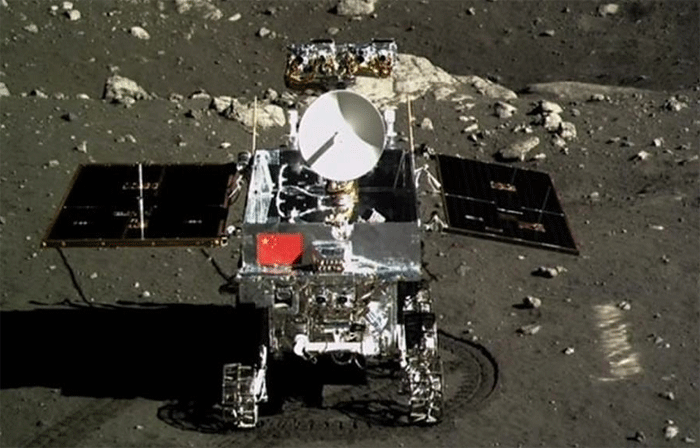.

Lunar rock collisions behind Yutu damage: designer
BEIJING, Ailing Chinese moon rover Yutu, or "Jade Rabbit," might have been damaged by knocking against rocks on a lunar surface that is more complicated than expected, its designer has said.
Yutu, China's first moon rover, drove onto the lunar surface on Dec. 15 last year during the Chang'e-3 lunar mission, but in January it suffered a "mechanical control abnormality" which has continued to trouble it ever since.
The rover was tested in Beijing, Shanghai and the desert in northwestern China before its launch, but the terrain of the landing site proved to be much more rugged than expected, said Zhang Yuhua, deputy chief designer of the lunar probe system for the Chang'e-3 mission. "It is almost like a gravel field."
Data from foreign researchers projected that there would be four stones, each above 20 cm, on average every 100 square meters, but the quantity and size of the stones that Yutu has encountered has far exceeded this expectation, Zhang said in an exclusive interview with Xinhua.
"Experts' initial judgement for the abnormality of Yutu was that the rover was 'wounded' by colliding with stones while moving," she said.
It is very difficult to fix the malfunction as the components of Yutu, 380,000 km from Earth, have been expanding and contracting in sharp temperature changes for eight months, according to Zhang.
A major challenge for the 140-kg robot has been the temperature fluctuation of 300 degrees Celsius on the moon. When the sun sets, the solar-powered rover must hibernate and survive the night with a radioisotope heat source.
But Zhang said Yutu is "much stronger than expected."
It was designed to roam the moon for three months to survey its geological structure and surface substances and look for natural resources. But Yutu has managed to survive seven lunar nights so far.
During each lunar night, equivalent to about 14 days on Earth, temperatures can fall to minus 180 degrees Celsius. With each lunar night, the functionality of the rover is weakened.
"Yutu has 'over-served' its time on the moon and sent lots of data back to Earth. We hope it can continue to work miracles," Zhang said.
Quelle: Xinhua
4438 Views
